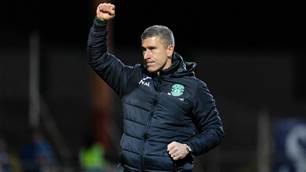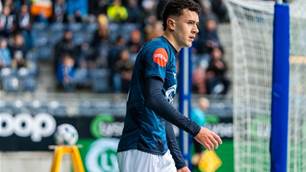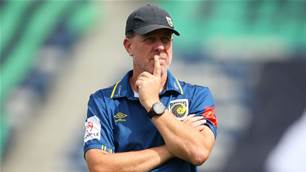Football Federation Australia announced in July last year their abandonment of the much controversial National Club Identity Policy. Instead they brought in ‘Inclusivity Principles for Club Identity.’
The move effectively allowed clubs with ethnic ties to revert back to the ethnic names they called themselves in the past.
A number of clubs have already changed back, including Canberra Croatia(from Deakin), Charlestown Azzurri (Charlestown City Blues) and Rockdale Ilinden (from Rockdale City). Former NSL club Apia Leichhardt re-branded themselves to embrace their heritage. There are many more that have followed suit.
Some find this move progressive, whilst others are very much against it and see it as going back to the dark past.
When the A league started in 2005, it was the beginning of a new era for Australian football. There were eight clubs, five of which started from scratch, whilst the other three namely Adelaide, Newcastle and Perth were in their infancy when the old NSL was disbanded. The main reason behind the A league and its sparkling new clubs was to severe ties with the old “ethnic” problems caused by the NSL. In reality, football in Australia had to go that way.
The majority of the old NSL fans were fantastic; passionate, fun loving and rarely caused trouble. Sadly it was the minority who caused the problems. Oppressed and angry individuals who sadly used football as the instrument for dealing with their own personal issues. This minority created a perception around Australia, rightly or wrongly, that our national league was just a hotbed of ethnic violence. There was also a common misconception that to be affiliated with a club you must share the heritage of that club. Personally, growing up a Sydney Olympic fan, the closest I came to being Greek was enjoying a good old souvlaki at our local take away shop in Warwick Farm. It didn’t stop me cheering on Norman Tome, Tony Spiriadakos, Peter Katholos or Branko Milosevic on a weekend. Listening to John Kosmina and the late Mike Cockerill call Olympic games on 2GB on a summer’s weekend is very much a fond childhood memory.
Fast forward now and the A league is into it’s 15th season.The old school ethnic clubs are plying their trade in various NPL and State League competitions around the country. Rarely has there been any sense of ethnic violence like there was in the old NSL days. Australia has evolved and most second or third generation European Australian’s don’t get involved in any of the problems that are not welcome at football grounds or in Australia as a whole. So with that in mind, it is important that we embrace the heritage and cultures of these clubs and support the new IPCI.
Marconi Fairfield has a rich Italian heritage as does Adelaide City. Melbourne Knights and Sydney United were started by Croatians.
Preston has its origins with the Macedonian Australian community. South Melbourne and Heidelberg were Greek, St George Budapest was Hungarian and the Parramatta Eagles were Maltese.
If we look at other club’s around the country who were not in the old NSL, the bulk of them who started in the last century have European backgrounds. For example, North Geelong Warriors was formed by Croatian Australians, the Macedonian community backed Geelong SC, Bonnyrigg White Eagles have a rich Serbian heritage, Auburn FC are Turkish, Liverpool Olympic is Greek and North Brisbane FC have Polish ancestry.
It is vital we acknowledge and celebrate this. Why? Well, simply people from those backgrounds started these clubs and kept football going in Australia for so many decades when the game was looked down upon or shunned by mainstream Australians.

Now thanks to the amazing work of these pioneers, “wogball” has evolved into Australia’s game. The game has brought people from all different backgrounds together more than any other cultural past time. More people participate in organised football than any other organised sport in this country.
The Socceroos and now the Matildas bring people from all different backgrounds together more than any of our other national teams. It is truly a multicultural sport which perfectly mirrors Australia’s multicultural way of life.
Let’s not forget how important it was for these ethnic pioneers to have football as a way to help them combat homesickness. Unless you’re a migrant you will have little understanding of what it’s like to start a new life in Australia. It is not a matter of flicking a switch and changing who you are.
It was important for European Australians to have a way of connecting with others from their heritage so they could forge a new life in Australia and overcome obstacles together, with people who understood what they were going through.
Football clubs not only provided a means to do this, but as time went on, these football clubs provided a way for people from different ethnic backgrounds - be it European, British, Asian, South American, Middle Eastern - to connect with each other and embrace what it truly meant to be an Aussie. That is, we are all the same, no matter what!
The most important thing to remember is that all of these ethnic clubs now welcome people from all different backgrounds. Go to a NPL or State League or Community football ground near you and you will see kids, teenagers, adults and elderly folk from all walks of life sitting together enjoying a cuppa or a hot pie whilst cheering on their team.
The team could be made up of an indigenous Australian, a Greek Australian, a Sri Lankan Australian, a Serbian-Polish Australian, an English-Indian Australian and so on. Regardless of the background of these clubs, they now belong to everyone, and that is how it should be.
Many Australians have met future husbands or wives from different backgrounds at their various football clubs, underlining how much their football club has shaped their life.
One thing we must address, there is no room for nationalism. That is the underlying cause of the trouble that does occasionally rear its ugly head.
Celebrating ones heritage does not mean you should become political or antagonistic towards other ethnicities or religions, even if there is a history of war and conflict. Any song or banner that is provocative or promotes violence or hatred is not at all welcome.
It is up to fans to use common sense and understand where the line is. Clubs must also have strict rules and consequences in place when things go to far.
After all football must be a safe and welcoming environment for everyone!
History and tradition is what makes sports so great. Without this history, we wouldn’t have a present or future. So let’s embrace it, not decry it!
Related Articles

Champion A-League coach set to join Premier League giants

Emerging Socceroos star set to sign for MLS club













